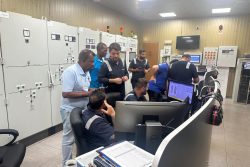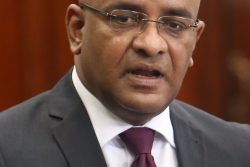Over a period of less than two months, public pronouncements by heads of key regional development support organizations including Head of the Caribbean Development Bank, Dr. Warren Smith have addressed the issue of corruption in the face of the prevailing COVID-19 pandemic. At various other international fora the respective Heads of the World Bank and the IMF among others have also dwelt on the subject of corruption, one of the key issues raised in each of their presentations being that crises on the scale of the prevailing coronavirus are frequently fertile breeding grounds for official corruption. These are times when, in some countries, scrupulous accountability can become subsumed beneath the imperative of swift crisis response initiatives so that each of these speakers, in turn, have made the point that it is at times when emergency responses become the order of the day that accountability mechanisms should be at their strongest. Indeed, it is not without significance that public pronouncements emanating from institutions like the IMF and the World Bank have been making the point regarding the safeguard mechanisms that have been put in place to hold the feet of beneficiary governments to the fire insofar as accounting for funds being made available to help countries respond to the pandemic.
Upon reflection it is patently obvious not only that there is a limit to what the donor organizations have done up until now to push back corruption in countries where resources made available for crisis response purposes are siphoned off by the very officials who are charged with getting the aid – whether it be direct financial aid or specific material needs – to the people who need them most. The point has been made that these corrupt practices operate under the cover of the nature of the prevailing crisis when the focus is on getting the aid ‘out there.’ That is when poor countries, particularly, are most vulnerable.
One of the particular challenges associated with pushing back official corruption has to do with the difficulties associated with ‘punishing’ sovereign states or those functionaries who, frequently, are part and parcel of the corrupt practices. Studies of corruption that involve the administering of aid assigned to poor countries as loans and/or grants have shown not only that there are myriad ways in which officials callously siphon off those resources but also that there are times when the gravy train extends much higher up so that when accusations are levelled the primary perpetrators simply use their collective state-accorded authority to close ranks. While in more recent years international organizations have been paying greater attention to insisting that structures be put in place at the level of the state to at least try to minimize official corruption, corrupt public officials more often than not find ways to circumvent those structures.
What has triggered attempts by international organizations to ‘tighten the screws’ by attaching more criteria to making aid available to countries believed to be corrupt at the level of government is the growing realization that the impact of their poverty-alleviation efforts are being continually undermined by the extent to which aid intended to be assigned to making inroads into poverty is in fact being siphoned off by public officials. What we have been witnessing during the coronavirus rampage is a clear pushback by the Heads of international organizations who, in recent times, have appeared far more willing than in previous years to put in place conditions associated with the allocation of loans and grants.
If the increasing robustness with which the issue of corruption is being articulated in public fora by high profile political figures and heads of international organizations is indicative of a determination to push back this scourge, what it also may signal is an equal measure of alarm and frustration over the fact that poor countries where help is most needed can sometimes be the most dogged ones in terms of a determination to persist in corrupt practices. If it has long been known that for many politicians the pursuit of the profession is, in fact, driven by as desire to capture the state or more accurately, to plunder it, an assertive response has been slow in coming.
Historically, the problem of unchallenged corruption in poor countries has always been two-fold. The first is the powerlessness of the poor, on the one hand and the preparedness of public officials who can make a difference to frequently settle for a ‘buy in’ with those who are already ‘in the game.’ The second has to do with the supersession which sovereignty has historically enjoyed and the consequential weak hand with which international organizations have been playing in terms of the application of conditionalities and sanctions. In the current climate what the enhanced global need to get aid to the poor in various countries across the world has done is not only to focus greater attention on corruption and its impact on those countries in which stealing from the state has become commonplace but also to create the conditions that allow the donor agencies to fashion to appropriate responses. It is, at this juncture, a question of which way the pendulum will swing.





